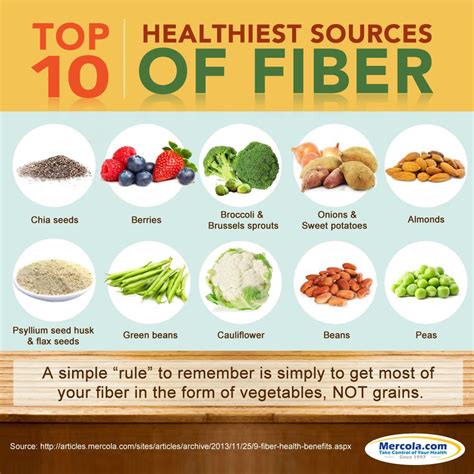In today's society, many individuals strive to achieve a healthier body weight. However, with a myriad of ways to achieve this goal, it can be overwhelming to determine the most effective strategies. In this article, we will explore five proven techniques for losing weight naturally, without relying on extreme diets or artificial supplements.
Firstly, it is vital to emphasize the significance of incorporating regular physical activity into your daily routine. Engaging in exercises such as brisk walking, swimming, or cycling not only burns calories but also increases your metabolism and improves overall physical fitness. By making exercise a regular part of your lifestyle, you can experience sustainable weight loss and enjoy the numerous benefits of an active lifestyle.
Another key aspect of natural weight loss is adopting a balanced and nutritious diet. Instead of restricting yourself with fad diets or overly strict meal plans, focus on consuming whole, unprocessed foods that are rich in essential nutrients. Incorporate a wide variety of fruits, vegetables, lean proteins, and whole grains into your meals to provide your body with the necessary nourishment it needs to function optimally.
Furthermore, it is crucial to cultivate mindful eating habits. Instead of mindlessly consuming meals while distracted, take the time to savor each bite and listen to your body's hunger and fullness cues. This practice allows you to develop a deeper connection with your body and better understand its needs. By eating slowly and savoring each bite, you can prevent overeating and make more conscious food choices.
In addition to physical activity and a balanced diet, managing stress plays a crucial role in achieving natural weight loss. Chronic stress can lead to emotional eating and make it more challenging to maintain a healthy weight. Incorporating stress-reducing practices such as meditation, yoga, or engaging in hobbies can help alleviate stress and promote overall well-being. By addressing the root causes of stress in your life, you can create a conducive environment for sustainable weight loss.
Lastly, adequate sleep is often overlooked but is essential for maintaining a healthy body weight. Lack of sleep disrupts hormonal balance, leading to increased hunger and cravings for unhealthy foods. Ensuring quality sleep of at least seven to eight hours per night can support your weight loss journey by regulating your appetite and improving overall energy levels.
By implementing these five effective strategies, you can embark on a natural weight loss journey that is both sustainable and rewarding. Remember, small changes over time can lead to significant results. Stay committed, stay motivated, and keep striving for a healthier, happier you!
Incorporating High-Fiber Foods for Easier and Healthier Weight Management

Enhancing your dietary intake with high-fiber foods can significantly contribute to achieving your weight management goals in a natural and sustainable manner. A high-fiber diet not only aids in weight loss but also provides numerous health benefits, including improved digestion, balanced blood sugar levels, and reduced risk of chronic diseases.
1. Fuel your body with whole grains.
Whole grains, such as quinoa, oats, and brown rice, are excellent sources of dietary fiber. These grains not only satisfy your hunger for longer periods but also contribute to a healthy digestive system and help regulate blood sugar levels. Incorporating whole grains into your meals can be as simple as replacing refined grains with whole grain alternatives such as whole wheat bread or brown rice.
2. Embrace the power of legumes.
Legumes, including beans, lentils, and chickpeas, are rich in fiber and protein, making them incredibly beneficial for weight management. These versatile ingredients can be used in soups, salads, stir-fries, and dips, providing a satisfying and nourishing addition to your meals. Incorporate legumes into your diet regularly to boost your fiber intake and promote a sense of fullness.
3. Load up on fruits and vegetables.
Fruits and vegetables are naturallу rich in fiber and essential nutrients. They offer a wide range of choices for including high-fiber foods in your diet. Opt for colorful and diverse options like berries, apples, leafy greens, and broccoli. These not only provide ample fiber but also deliver antioxidants, vitamins, and minerals crucial for overall health.
4. Indulge in healthy nuts and seeds.
Nuts and seeds, such as almonds, chia seeds, and flaxseeds, are not only packed with fiber but also offer a dose of healthy fats and protein. Adding these crunchy delights to your meals or snacks can increase satiety and help control appetite. Remember to consume them in moderation as they are high in calories.
5. Don't forget about water.
While not a high-fiber food itself, water plays a vital role in maintaining a healthy weight. Drinking an adequate amount of water throughout the day helps in digestion, supports metabolism, and promotes feelings of fullness. Additionally, water-rich foods like cucumbers, watermelon, and tomatoes can also contribute to your overall fluid intake.
Incorporating high-fiber foods into your daily routine is a simple yet effective way to support your weight management journey. Remember to gradually increase your fiber intake and drink plenty of water to experience the maximum benefits. Start making these small dietary changes today and enjoy a healthier, more energized lifestyle.
Increase Your Protein Intake
Boosting the amount of protein you consume can have a significant impact on your weight management journey. Increasing your protein intake can aid in achieving your desired weight loss goals by promoting feelings of fullness, enhancing muscle growth and repair, and boosting your metabolism.
- Include lean sources of protein such as chicken, turkey, fish, tofu, and legumes in your meals.
- Opt for Greek yogurt, cottage cheese, or eggs for a protein-rich breakfast.
- Snack on nuts, seeds, or protein bars to keep your energy levels sustained throughout the day.
- Add protein powder to smoothies or shakes for a quick and convenient source of protein.
- Consider incorporating a variety of plant-based protein sources like quinoa, lentils, and chickpeas into your diet.
Remember, increasing your protein intake alone may not lead to desired weight loss results. It is essential to combine it with a balanced diet, regular exercise, and a healthy lifestyle for optimal success.
Stay Hydrated by Drinking Plenty of Water

Adequate hydration is crucial for overall health and plays a significant role in achieving and maintaining a healthy weight. In this section, we will discuss the importance of staying hydrated and how drinking plenty of water can support your weight loss journey.
Water is an essential component of our body and is involved in various physiological processes. It helps to regulate body temperature, aids in digestion, carries nutrients to cells, and eliminates waste products. When it comes to weight loss, staying hydrated can be highly beneficial.
| Benefits of Drinking Water for Weight Loss |
|---|
| 1. Enhances Metabolism: Drinking an adequate amount of water can boost your metabolism and increase the number of calories you burn. |
| 2. Controls Appetite: Water fills up your stomach and can help suppress appetite, preventing overeating and promoting weight loss. |
| 3. Reduces Calorie Intake: Sipping on water throughout the day instead of sugary beverages can reduce overall calorie intake, aiding in weight management. |
| 4. Enhances Exercise Performance: Proper hydration improves physical performance, allowing you to exercise more efficiently and burn more calories. |
| 5. Eliminates Toxins: Water assists in flushing out toxins and waste products from the body, supporting the natural detoxification process. |
To reap the benefits of water for weight loss, it is recommended to drink at least 8 glasses (64 ounces) of water per day. However, individual water needs may vary depending on factors such as activity level, climate, and health condition. It is essential to listen to your body and drink water whenever you feel thirsty.
Additionally, incorporating water-rich foods such as fruits and vegetables into your diet can also contribute to hydration. These foods provide not only water but also essential nutrients and dietary fiber, promoting satiety and aiding in weight management.
In conclusion, staying hydrated by drinking plenty of water is a simple yet effective strategy for supporting weight loss. By understanding the benefits of water and incorporating it into your daily routine, you can optimize your weight loss efforts and improve your overall well-being.
Stay Active for Healthy Weight Management
One of the key strategies for achieving and maintaining a healthy weight is to engage in regular physical activity. Physical activity plays a vital role in burning calories and boosting metabolism, leading to weight loss and improved overall wellness.
- Cardiovascular exercises: Incorporate aerobic exercises such as walking, jogging, cycling, or swimming into your routine. These activities elevate your heart rate, improve endurance, and burn calories.
- Strength training: Include strength training exercises such as weightlifting or bodyweight exercises to build muscle mass. Muscle burns more calories than fat, even at rest, helping you achieve a higher metabolic rate.
- High-intensity interval training (HIIT): Add HIIT workouts to your fitness regimen. These short bursts of intense exercise followed by brief recovery periods are highly effective in burning calories and increasing overall fitness.
- Outdoor activities: Engaging in outdoor activities like hiking, gardening, or playing a sport not only helps in weight management but also provides a fun and enjoyable way to stay active.
- Incorporate movement throughout the day: Avoid prolonged sitting or sedentary behavior by incorporating movement into your daily routine. Take short walks, use the stairs instead of the elevator, or stand while talking on the phone to stay physically active.
Remember that physical activity should be enjoyable and sustainable. Choose activities that you enjoy and make them a regular part of your lifestyle for long-term weight management and overall well-being.
Ensure Adequate Rest to Support Healthy Weight Management

Getting sufficient sleep plays a crucial role in maintaining a balanced weight and supporting your weight loss journey. Adequate rest is essential in optimizing your body functions, including metabolism, hormone regulation, and overall energy levels.
When you don't get enough sleep, your body's natural processes can become disrupted, leading to various challenges in managing your weight. For instance, inadequate sleep can negatively impact your metabolism, causing it to slow down and making it harder for you to burn calories efficiently.
Additionally, lack of sleep affects the production of essential hormones that regulate hunger and fullness. This can lead to increased appetite and cravings for unhealthy, calorie-dense foods, which can hinder your weight loss efforts.
Furthermore, insufficient rest can impact your energy levels, making it more difficult to engage in physical activities and maintain an active lifestyle. Exercise plays a significant role in weight management by helping to burn calories and build lean muscle mass.
To ensure optimal sleep for supporting weight loss, establish a consistent sleep routine, aiming for 7-9 hours of quality sleep each night. Create a comfortable sleep environment, free of distractions, and implement relaxation techniques before bed to promote better sleep.
- Avoid consuming caffeine or stimulating substances close to bedtime
- Limit exposure to electronic devices with blue light in the evening
- Engage in calming activities, such as reading or listening to soothing music
- Maintain a regular sleep schedule, even on weekends
Prioritizing and prioritizing adequate sleep can provide numerous benefits for your overall health and well-being, as well as optimize your weight management efforts.
FAQ
What are some effective ways to lose weight naturally?
There are several effective ways to lose weight naturally. One way is to incorporate regular exercise into your routine, such as jogging, swimming, or cycling. Another effective way is to follow a balanced and nutritious diet that is low in calories and high in fruits, vegetables, and lean proteins. Additionally, drinking plenty of water and avoiding sugary beverages can help with weight loss. Finally, getting enough sleep and managing stress levels can also contribute to natural weight loss.
Are there any specific foods that can help with natural weight loss?
Yes, there are several foods that can aid in natural weight loss. Foods that are high in fiber, such as whole grains, fruits, and vegetables, can help keep you feeling full for longer periods and prevent overeating. Likewise, foods that are high in protein, like lean meats, eggs, and legumes, can also aid in weight loss by boosting metabolism and reducing appetite. Additionally, incorporating foods rich in healthy fats, such as avocados, nuts, and olive oil, can help promote satiety and support weight loss.
How long does it generally take to see results from natural weight loss methods?
The time it takes to see results from natural weight loss methods can vary depending on several factors, including individual metabolism, initial weight, and adherence to the chosen methods. Generally, a safe and sustainable rate of weight loss is around 1-2 pounds per week. Therefore, it is realistic to expect visible results within a few weeks to a couple of months, depending on the individual. It is important to remember that slow and steady progress is more sustainable and healthier in the long run.



